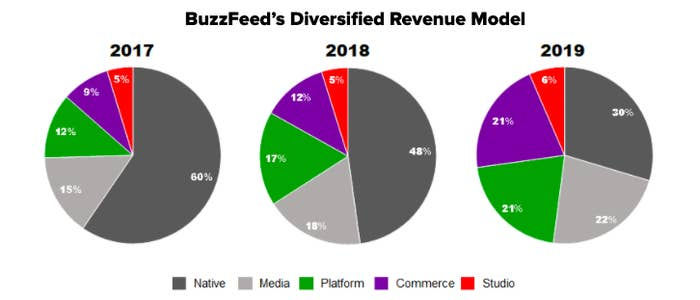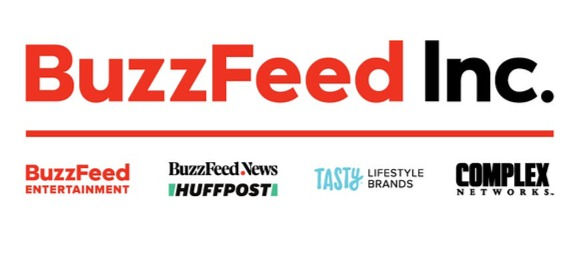What went wrong with BuzzFeed?
- Arshyaa

- Jul 27, 2022
- 4 min read
Updated: Aug 13, 2022
Unless you are living under a rock there is hardly any soul who hasn't encountered any BuzzFeed-associated content. It rose to fame with its overall media ecosystem ranging from online articles, and to various pieces of investigative journalism, and comedy videos during the 2012 YouTube era when digital media was gaining widespread acceptance.

However, BuzzFeed has been lagging recently, suffering massive losses across various verticals ranging from its content quality to various controversies the company has embroiled itself. In this article, we will give you a detailed insight into the phenomenal rise and dismal fall of BuzzFeed.
Inception of BuzzFeed
Johann Peretti, an MIT grad started "BuzzFeed" as a side project while working at "The Huffington Post." This was the time when audiences were recognizing digital media which was a shift from traditional media. Memes were insignificant in the entertainment space when BuzzFeed started. It was a kind of a subculture that was miles away from the mainstream internet and this was exactly what BuzzFeed decided to capitalize on.

Johann started "BuzzFeed laboratories" which could be summarised as a web algorithm that scraped stories across the internet which had the potential to go viral. However as time passed BuzzFeed employed its content team and started producing web content that was satirical, humorous, and easy to read for the audience. This shift from a chatbot to a digital media production house was what marked the inception of BuzzFeed.
In 2010, BuzzFeed founded its video division marking its advent into YouTube. What followed was a complete dominance of BuzzFeed over YouTube with various small divisions across the organization turning into small makeshift brands across YouTube. The video content ranged from various niches to stock market to cooking. BuzzFeed was truly dominating the scene. It also had many famous web series like Worth It, Unsolved Crime, As/It, etc.
BuzzFeed's news division which was founded in 2012 ended up giving winning a Pulitzer Prize. People began to recognize 'BuzzFeed News' after it started reporting on various political scandals ranging from the government spending in Afghanistan to various other scandal exposes that brought the government to the dock. This was followed by a series of serious pieces of investigative journalism which bagged them a Pulitzer for their journalism piece on Uyghur Muslims in the Xinjiang region of China.

BuzzFeed relies on various mechanisms to earn revenue. It has crafted itself a collaborative revenue ecosystem thus ensuring revenue from multiple streams with zero dependence on any particular stream of income.
The major revenue sources of BuzzFeed are native advertisements and display advertisements. By selling valuable advertisement space across its website, BuzzFeed earns money through various methods ie. CPC, CPS, or a promotional fee levied at the start of any campaign. Apart from this native advertisements is another component wherein BuzzFeed collaborates with various brands and integrates their products seamlessly into the content and meanwhile promoting the product. For native advertisements, BuzzFeed has collaborated with the likes of KFC, Volkswagen, etc.
Apart from this BuzzFeed earns revenue for various other verticals such as video advertisement, subscription models, affiliate marketing, and podcast marketing. Apart from these sources, there are other revenue streams that BuzzFeed uses to earn revenue.
At the beginning of the Fall of BuzzFeed
Although BuzzFeed had a perfect ecosystem with massive gains, the company still started losing ground with plagiarism complaints. Users began to notice a heavy amount of directly plagiarised content. The extent of plagiarised content on the site was so much that a lot of content was directly copy-pasted from Reddit or various other forums.
BuzzFeed began to see various famous influencers and regular faces who were loved by the audience part ways from BuzzFeed and the majority of the time these partings were bitter. This further strained the relationship between BuzzFeed and its audience because the audience didn't accept the new faces.
BuzzFeed saw various massive layoffs across various verticals although, they termed it as a structural restructuring to increase efficiency however the primary reason behind this was failed revenue targets which further led to bitter investors and failed funding rounds.Apart from content issues, BuzzFeed decided to go public on the stock market however this ambitious project didn't take off as planned.
BuzzFeed decided to become the first digital media company to be publicly traded on NASDAQ with a $1.5 Billion valuation. To go public, it chose the "SPAC merger" route. This route allows new age companies to go public through the third party route with fewer legalities. However, the SPAC merger didn't bring in the right amount of capital due to investors withdrawing their capital at the last moment.
The stock was heavily traded on the first day however it witnessed massive pitfall of 20% in the upcoming days and the stock value severely declined with no signs of revival. Many current and former employees sued Buzzfeed for its mismanaging of IPO, As employees weren't able to sell their ($BZFD) shares on market.

With this move, They wanted to acquire Complex Network for $300 million which is famous for its Hot Ones series. Complex's website brings 7.2 Million views monthly views (as of July, 22) which covers topics related to streetwear, music, and food. Before going public, Buzzfeed bought HuffPost for $150 Million, which at the time was losing $20 Million every year but after a series of cost-cutting measures they are now expected to turn profitable by the year-end.
If we compare all the companies under Buzzfeed in a 5-year chart, You can see that all the companies except Hot Ones are declining every year. Buzzfeed's own website only brings around $93 Million views per month, This becomes a major problem for shareholders of $BZFD as the company still struggles to find a stable audience. Their main YouTube channel (BuzzFeed Videos) only gets 30K-50K per video which shows poor audience engagement.
If we compare it with Barstool Sports and Vox Media which are currently thriving in the media space, Both of the companies have a strong audience engagement. But this doesn't mean that in the future these companies will stay relevant. These companies are heavily dependent on the algorithms of search engines and social media sites.
Although BuzzFeed is trying to project itself as profitable, logging massive growth, the core business of BuzzFeed is still unprofitable. Its growth trajectory has been seeing a downward turn over the past few years and it would be remarkable to see if BuzzFeed turns the tables and achieves massive revenues or dies a slow death.









Comments